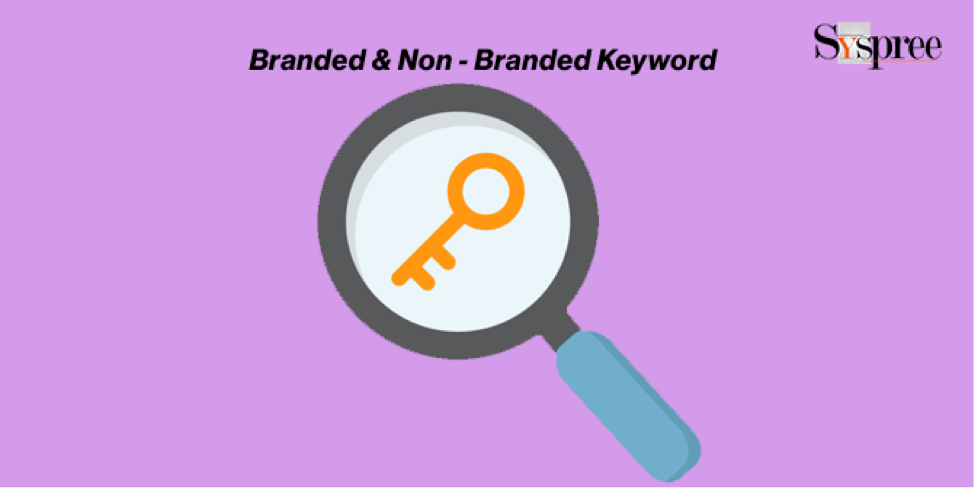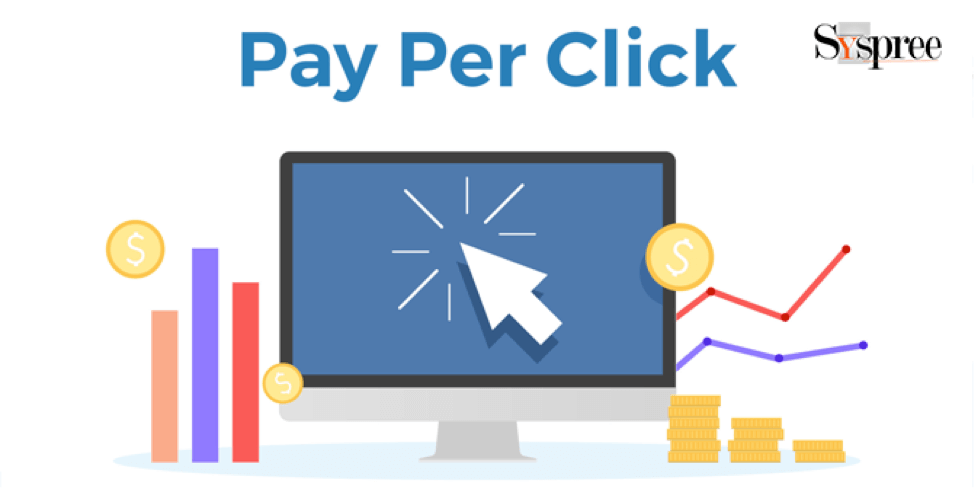It is important to conduct in-depth research on keywords before the start of your campaign, keep track of the outcomes of these keywords, and search for new opportunities regularly.
Finding the branded and non-branded terms for the keywords on your website will likely come up throughout this study. If you like to be many marketers, you might wonder which is better for your marketing campaigns.
This subject is often covered in PPC campaigns, but the brand and non-branded keywords should play a role in your business’s general Internet advertising strategy.
Branded keywords: what are they?

Branded and Non-Branded Keywords
Before discussing how the branded and non-branded keywords can be included in your plan, we must be aware of both.
Branded keywords are those that contain the name of your company. For our company, as an illustration, every phrase that contains “WebFX” is a branded keyword, regardless of other words surrounding it.
Keywords that are derived from keywords from other brands but do not count as considered to be brand-specific keywords that are used by your business. This is a crucial distinction to be aware of if you’re a retailer and offer products from different brands.
For instance, the well-known footwear retailer Zappos sells shoes from various brands. Their case is that terms such as “Zappos boots” and “Zappos reviews” are brand-named – however “,
Nike sneakers” and “Birkenstock sandals” aren’t branded, even when Zappos sells those items.
While these terms may refer to certain brands, they’re not specific to the business.
People searching for those keywords aren’t necessarily looking to purchase from them or to learn the details about their company’s brand. Instead, they’re looking for a specific item that other retailers sell.
On the other hand, users who search for your brand’s keywords show clear enthusiasm for your business – and, in the majority of cases, they are acquainted with the services you provide.
What are non-branded keywords?
Keywords that are not branded are related to your products or services; however, they don’t include your company’s name.
Our website illustrates that “Digital marketing agency” and “SEO services” are both relevant, non-branded keywords. These are phrases used by those interested in our services; however, they don’t directly refer to our company’s name.
Your strategy has greater options for a non-branded keyword than the ones your customers use to search almost endless.
Which produces better results, branded or non-branded keywords?
We’re frequently asked if brand-name or non-branded keywords yield more outcomes. This is a frequent query from marketers creating PPC campaigns because every keyword comes with a special price.
The truth is that both non-branded and brand-name keywords are crucial for each SEO and PPC campaign. They show different intent for search and can reach customers at various stages of the purchasing process.
To demonstrate this, it is possible to search for non-branded and brand-named keywords in your marketing campaigns using Google’s Keyword Planner. To illustrate this article, we’ll look at the outcomes of a Google search for the unbranded keyword “running shoes” and the trademarked keyword “Skora running shoes.”
With this example, we’ll look at which of these keywords is the most effective regarding visibility, competition costs, and conversion rates.
Visibility: Non-branded
If you want to attract new customers, make sure you target keywords that many people are searching for.
As a leading search engine optimisation company Singapore we explain that using keywords with a significant search volume will increase the number of people who will view your ads (assuming that your offer is sufficient to show for the keywords you are targeting).
If we look at the monthly average searches for these terms, advertising that advertises “running shoes” could potentially have a greater reach of 100,000 as compared to “Skora running shoes”.
Therefore, if your primary objectives are to increase visibility in results from search engines, increase brand awareness, and bring more visitors to your website, non-branded keywords are the ideal choice to achieve these objectives.
Competition: Branded
The number of advertisers placing bids on a keyword in Keyword Planner determines the amount of competition. As competitive as a term is and greater the difficulty is to place your ad on it.
Keywords that are not branded are more competitive as they’re not exclusive to one particular business. Hundreds of companies are looking to promote products or services similar to what you provide. However, the ideal brand name should be unique.
However, your competitors could advertise on your brand’s keywords to grab the attention of people who search for your brand directly. This typically happens in extremely competitive fields and is something you need to be aware of as you develop the PPC strategy.
Cost: Branded
Due to the lack of competition, brand-name keywords’ cost per click (CPC) tends to be lower too. If only a few advertisers are bidding on an item, the price of advertising for it can be as low as the cost of a few cents.
If staying within your budget is among your main concerns regarding PPC, then branded keywords could be among your top options for ads with a low CPC.
Conversions: Branded
The main goal of your marketing efforts is to increase revenue and sales for your business. That means you’ll need to choose keywords that have significant conversions.
In the case of PPC, ads that are brand-name keywords usually yield higher conversion rates as compared to ads that are not branded. Therefore, if you make separate campaigns for non-branded and branded, the results are likely to be superior for ads that are branded.
It’s also crucial to keep in mind that those with branded keywords tend to be more advanced in the purchasing process.
They’ve probably researched their choices and visited your site through previous searches. Likewise, they’re familiar with the services and products that you provide. Therefore, even though a branded advertisement might be their final impression before they decide to convert the business, they may have first discovered your business through an unbranded search.
The success of branding campaigns is unaffected by this, though. They are able to convert people, after all. However, in the majority of cases, the conversions that result are the outcome of a plan that includes both branded and non-branded keywords.
How do you balance branded and non-branded keywords?
Because they offer unique advantages, branded and unbranded keywords are crucial to a successful internet marketing strategy.
Here are some tips by the top top SEO company in Singapore help you figure out which strategies to employ and how to ensure that your SEO or PPC strategies complement each other to produce the most effective outcomes.
Set up natural rankings of your brand keywords

Set up natural rankings of your brand keywords
Branded keywords are usually the most straightforward to get ranked for, particularly when your business has an unusual or unique name.
If you’re not getting ranked for branded keywords, make it a top priority to improve your homepage and other pages to promote your company’s brand name.
If potential customers search specifically for your business, it is important to make it as simple as you can for them to locate your website. In addition, since branded keywords are more likely to convert, being ranked well for them can be extremely beneficial for your company.
Concentrate the SEO effort of your business on unbranded terms
Once you’ve established organic ranking for your branded keywords, it should not be difficult to keep them up, except, of course, there’s another business using the same name.
If this isn’t a problem for your business, then you’ll need to concentrate your SEO efforts on non-branded keywords.
Growing your organic ranking for keywords that are not branded also improves your website’s visibility and is generally more affordable over the long term as compared to PPC campaigns.
While running an effective PPC campaign involves more initial work investment than creating and optimizing pages that rank well, these pages will keep bringing people to your website for a very long time and won’t cost you anything.
PPC ads, however, on the other hand, can only result in results in the time you are paying for the services. For non-branded keywords, the costs for running long-term campaigns may be very high.
Create distinct PPC campaigns for both branded and non-branded keywords

Pay per Click (PPC)
If you are running PPC advertisements for your business, creating separate campaigns for a brand or non-branded words is important. They shouldn’t be the sole segment (you can create non-branded campaigns for your various product categories, for instance); however, they should be distinct.
As we’ve already mentioned that both kinds have distinct advantages. Therefore, you should be prepared for different results based on the search terms you choose to use.
A campaign with just brand-named keywords will usually be more successful in terms of clicks, cost per click and conversion rates than a campaign that uses solely non-branded keywords.
When you combine them in one campaign, it could be difficult to gauge the success of that campaign. Separating them allows you to establish realistic goals for each.
Utilize not-branded PPC campaigns to broaden your reach
PPC campaigns are a great way to get in front of users looking for keywords that aren’t branded and which aren’t being ranked organically.
This is especially the case especially if you’re beginning your SEO campaign but haven’t achieved the top positions for your most relevant keywords. It may take a while to reach the positions you desire, and PPC advertisements can help draw traffic to your site in the meantime.
PPC campaigns are also beneficial for terms that show an obvious intent to purchase. They will help you connect with those searching for the goods and services you provide, even if they’ve never heard of your business before.
Although you’d like to be able to rank organically for these phrases, it’s sometimes not practical. PPC campaigns can be a great way to build brand recognition and gain, at the very least, a few visits looking for non-branded competitive keywords.
Make use of RLSA for keywords that are not branded to target previous site users.
If you are looking to target non-branded keywords but have a budget in place, Remarketing Lists for Search Ads are a fantastic way to target your ads at those users who are the more likely to be converted. RLSA allows you to set your audience limit to those who have been to your site.
Instead of competing with many advertisers to reach a large market that could be very early on the purchasing process, limit your target audience to those well-versed in your company.
It is also possible to tailor your ads to customers’ specific needs by highlighting items they previously browsed on your website.
This means that unless competitors employ the same approach (and the user has already been to every one of their websites before), your ad will be more targeted to their needs than the others and increase the chance that they’ll click rather than your rivals.
3 ways to assist brand and non-branded users work together
Keywords that are branded as well as non-branded are a great addition to your digital marketing campaign. This article will show you how to ensure they all work in harmony.
- Learn when to begin by using brand-name keywords

Begin with brand-name keywords
One of the most important things to accomplish when setting up an advertising campaign is to conduct a keyword search.
As of now, you might not be required to choose specific keywords. Spending money on them can slow down your marketing efforts and lower the return on investment for marketing.
Here are some examples of when using branded keywords along with non-branded partners is a great idea.
- Your business is known: It doesn’t have to be a global household brand but should have a strong client base.
- You’ve got well-known merchandise: A product (or line of products) that you’re selling is growing popular rapidly.
- The CEO of your business is considered an expert in your field: If the business owner’s name is well-known, the company’s name and its products will benefit from the recognition.
Another benefit to bidding for your brand’s name is the protection aspect. You are in charge of the first impression people receive when they look up your products and values.
Furthermore, if competitors have the sole advantage of who is bidding on your name, you could be at risk of seeing your ads show up above organic results. This means they will be noticed first.
- Utilize branded keyword data to modify non-branded keywords
Let’s assume that most of the traffic comes from branded keywords. This means that your company is popular. You likely have a large clientele that favours your brand over other brands.
Sounds fantastic!
However, the massive success of the branded keywords could have a negative impact on your performance.
If your branded keywords are performing well but not doing well, it is possible to change your non-branded strategy. In addition to improving your non-branded keyword campaign, consider increasing your efforts to increase brand awareness.
- Be aware of when to keep brand and non-branded keywords separated.
While both non-branded and branded keywords can be used in conjunction, they shouldn’t be in one campaign. In order to increase the conversion rate, you should keep both keywords in their own distinct campaigns.
If you mix both terms into a single campaign, it’s difficult to gauge the success of each kind of keyword and determine realistic conversion goals.
However, this doesn’t mean that you should not pay attention to non-branded keywords. To ensure that the campaign is branded to achieve the desired results, it is recommended to increase your non-branded campaigns as well.
For instance, customers who respond quickly to advertisements with your brand could have entered the funnel using non-branded marketing techniques.
Conclusion
Deciding whether to use branded or unbranded keywords is often based on your objectives.
If you’re looking to boost your exposure, consider going without branding.
Are you looking for less competition, greater affordability and better conversion rates? Consider using a brand name.
In any case, make sure that you are tracking accurately and track the performance of your system to improve accordingly. If you have found helpful info on this blog post, then do check out our previous blogs 7 digital marketing strategies for your business.







